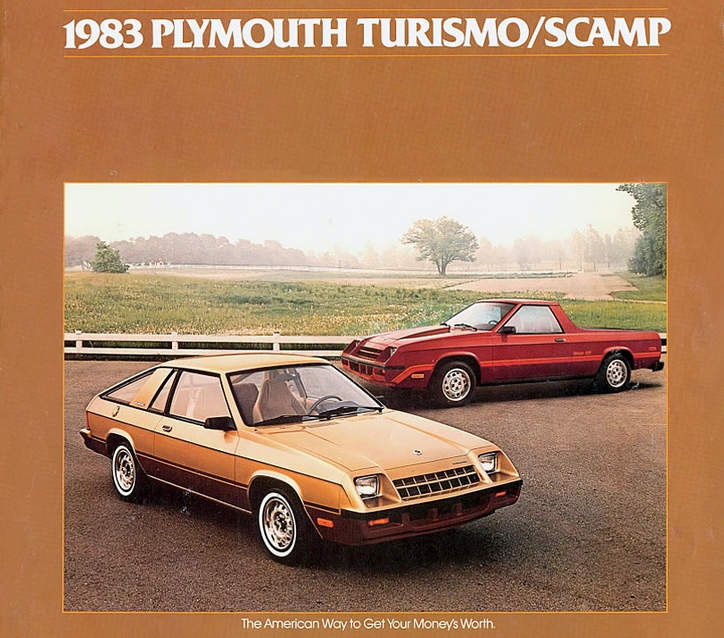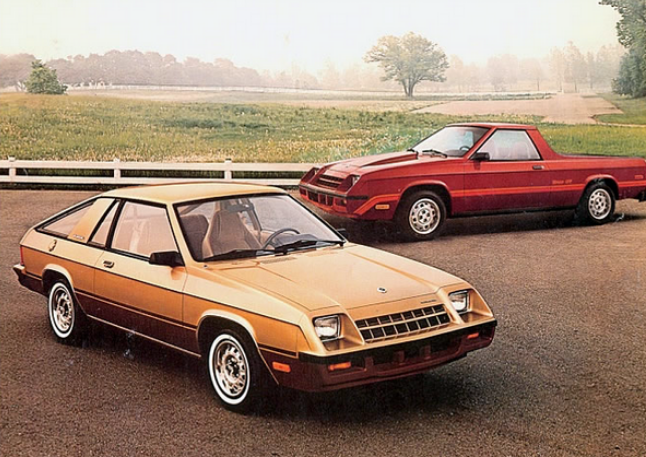
Depending on who defines it, the automotive “malaise era”—the period of time during which vehicle performance declined steeply, mostly as a result of emissions issues—ended in the early Eighties. That said, what was considered quick by 1983 standards seems pretty quaint today.
Still working through the cost/benefit equation of fuel-injecting popularly priced vehicles, American manufacturers relied heavily on largish, low-revving, low-horsepower carbureted V8s to motivate most of their full-size cars and trucks, and fairly large V6 mills for their midsize products. Fuel injection was still the domain of import manufacturers, and a few domestic small cars.
Thus, of the dozen fastest vehicles tested by our editors back in 1983, only three were packing V8 engines under the hood. Of the rest, there were five 6-cylinder engines, two 4-cylinders, one 5-cylinder, and one rotary.
Presented below are the 12 fastest accelerating cars of 1983, as tested by Consumer Guide. As the Consumer Guide folks didn’t spend much time testing Ferraris or Lamborghinis, this list is decidedly mainstream.
Note that the acceleration times listed here represent real improvements over those reported on our 10 Fastest Cars of 1981 list.
Times presented below are 0-60 mph results. Specifics of the vehicle tested follow.
*As tested by Consumer Guide.
Porsche 911 SC Cabriolet: 7.0 seconds
Engine: 172-horsepower, 3.0-liter horizontally opposed six
Transmission: 5-speed manual
Layout: Rear engine/rear drive
Weight (pounds): 2785
Consumer Guide did not test the 1983 911 coupe, which was slightly lighter than the Cabriolet.
Mercury Capri RS: 8.0 seconds
Engine: 176-horsepower, 5.0-liter V8
Transmission: 4-speed manual
Layout: Front engine/rear drive
Weight (pounds): 3175
The 5.0-liter “High Output” V8 came standard on Capri RS models and was available as a $1343 option on lesser trim levels.
Audi Quattro: 8.0 seconds
Engine: 156-horsepower, 2.1-liter turbocharged 5-cylinder
Transmission: 5-speed manual
Layout: Front engine/all-wheel drive
Weight (pounds): 2838
At $35,000, the Quattro was exceedingly expensive by 1983 standards. A similar-looking (and more affordable) Audi Coupe was also offered for 1983. The Coupe started at $12,600 and came without all-wheel drive or turbocharging.
Ford Mustang GT Convertible: 8.2 seconds
Engine: 176-horsepower, 5.0-liter V8
Transmission: 4-speed manual
Layout: Front engine/rear drive
Weight (pounds): 3055
The 1983 Mustang and Mercury Capri were mechanically identical, though the Capri was not available in convertible form.
Datsun 280ZX Turbo: 8.5 seconds
Engine: 180-horsepower, 2.8-liter six
Transmission: 5-speed manual
Layout: Front engine/rear drive
Weight (pounds): 3125
Consumer Guide editors made note that the 1983 test 280ZX Turbo was slightly slower than a similar 280 with automatic transmission tested for 1982. A drop in turbo boost during shifting was blamed for the slower acceleration.
10 Worst Gas Guzzlers of 1988*
Porsche 944: 9.2 seconds
Engine: 143-horsepower, 2.5-liter four
Transmission: 5-speed manual
Layout: Front engine/rear drive
Weight (pounds): 2778
Despite earning a place on this list, the 944 was best known for its handling prowess.
Mazda RX-7: 9.4 seconds
Engine: 100-horsepower, 1.1-liter 2-rotor Wankel
Transmission: 5-speed manual
Layout: Front engine/rear drive
Weight (pounds): 2390
The 1983 RX-7 still made use of a manual choke.
Buick Regal T-Type: 9.5 seconds
Engine: 180-horsepower, 3.8-liter turbocharged V6
Transmission: 4-speed automatic
Layout: Front engine/rear drive
Weight (pounds): 3270
Non T-Type Regals made do with a 150-horsepower 5.0-liter V8 as their top engine option.
Toyota Celica Supra: 9.8 seconds
Engine: 150-horsepower, 2.8-liter six
Transmission: 5-speed manual
Layout: Front engine/rear drive
Weight (pounds): 2970
The Celica Supra’s $470 optional digital gauge cluster was panned by Consumer Guide’s editors.
Plymouth Turismo: 10.2 seconds
Engine: 94-horsepower, 2.2-liter four
Transmission: 5-speed manual
Layout: Front engine/front drive
Weight (pounds): 2350
Available with the manual transmission was a $75 “performance axle ratio,” which was not included on the Turismo evaluated by Consumer Guide. The nearly identical Dodge Charger would have performed similarly.
BMW 528e: 10.5 seconds
Engine: 121-horsepower, 2.7-liter six
Transmission: 5-speed manual
Layout: Front engine/rear drive
Weight (pounds): 3015
The “e” in 528e represented BMW’s “Eta” high-efficiency engine. Designed to forgo horsepower in exchange for greater torque earlier in the rev range, Eta engines allowed drivers to shift less frequently and cruise around town in higher gears. An available 533i with a conventional 3.2-liter six boasted 48 more horsepower than the 528e.
Pontiac Firebird Trans Am: 10.8 seconds
Engine: 150-horsepower, 5.0-liter V8
Transmission: 3-speed automatic
Layout: Front engine/rear drive
Weight (pounds): 3194
An available “Cross-Fire” fuel-injected 5.0-liter V8 brought 175 horsepower to Formula and Trans Am models, but added $858 to the bottom line.
